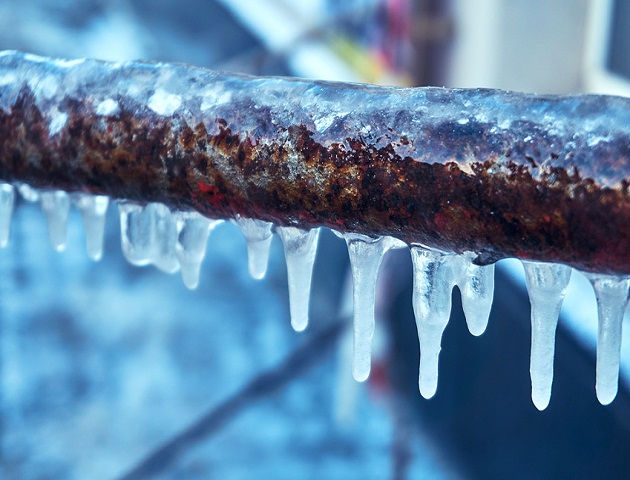
Winter brings joy and warmth to families gathering together, but your home’s pipeline isn’t as lucky. Frigid temperatures will lead to water freezing inside pipes, and such an event can easily cause significant damage. The structure of a pipeline is designed to contain and protect what’s inside but said protection has its limits. Since water expands as it turns to ice, frozen pipes are prone to bursting, especially if your water pressure leans onto higher numbers. Besides being ready to explode, most metals crack and shatter easier as temperature goes down, so facing extreme cold can be a real challenge for pipes, especially for those running against exterior walls or in unheated places (garage, basement, etc). Aside from its costs and problematic repair process because of freezing, not every plumber likes to work in extreme cold and knee-deep in snow and ice. So a viable solution is to prevent the problem altogether. Stay with us and read on to understand what you can do to prevent pipes from freezing.
The mechanisms of pipe freezing
Pipe freezing is quite an interesting phenomenon because the structure is indifferent to the freezing point of the liquid inside. But when you hit considerably lower numbers or stay under 0°C (or 32°F) for too long, the pipe starts to lose its strength. According to IAPWS 2013, as temperatures continue to fall below the freezing point, increases in hydrogen bonding among water molecules cause the crystalline structure to open up, increasing the expansive force of the ice. This explains why frozen water or heating pipes are more likely to actually burst at lower temperatures than at temperatures just below freezing.
The exposure conditions and the duration of exposure of the piping to low temperatures are also of great importance. As time goes on and the pipe doesn’t receive proper heating, cracks start to form, and given enough time, the ice will break through the casing. Warming up after the breakage will open up the cracks even further and before you know it, you’re faced with a broken pipeline.
What to do and how to do it
In this case, preventing the problem is a lot more cost-effective than solving it, but what you can and should do is a matter of professional perspective. Our experts offer a few different ways to prevent pipes from freezing. They may look like simple tricks, but they’re effective and easy to do without much experience and expertise in plumbing.
Keep the temperature as consistent as possible
It’s a logical habit to turn down your thermostat at night or when leaving home to help save on heating costs, but consistent temperature can be a key to protecting your water supply lines. Consider it an insurance policy against the risk of a burst pipe.
A dripping faucet is a great help
Running water freezes much slower, even if it’s not much of a current. Leaving a few faucets around the house dripping slightly will create such an effect with next to no cost and help relieve the pressure inside the pipes, so the risk of rupture is even lower.
Ensure warm air circulation
Try to keep interior doors and kitchen cabinets open as much as possible to distribute the heat throughout the house. This can ensure warm air circulation and help to prevent freezing.
Seal air leaks
Check around your pipes to find any cracks and openings and seal them tightly. For pipes near exterior walls and the sill plates where your home rests on its foundation, this can make quite a difference. Also, remember to close your garage door as soon as you go in or out.
Pipe insulation can be a game changer
Inexpensive, effective, and widely available. Especially in a location such as an attic and garage, insulation can help a lot. Apply foam insulation or wrap your pipes in heat tape to keep them warm enough.
Drain garden pipelines
If you have a garden or outdoor water outlet, consider disconnecting and draining its pipes. You can do this by shutting off valves that supply hose bibs and opening the faucet. Keep it open throughout the winter so leftover water has enough space to expand. Faucet covers are also a great option to have, especially for colder months.
Conclusion
As we tried to bring to your attention, you can do some simple tricks to keep your pipelines functional and defrosted throughout the colder seasons. But if even after taking the steps provided here you are still faced with problems, our team at Atlantic Coast Mechanical Ltd. is always ready to lend you a hand. It doesn’t matter how cold it gets, you can always count on us to provide your homes with warmth and safety
